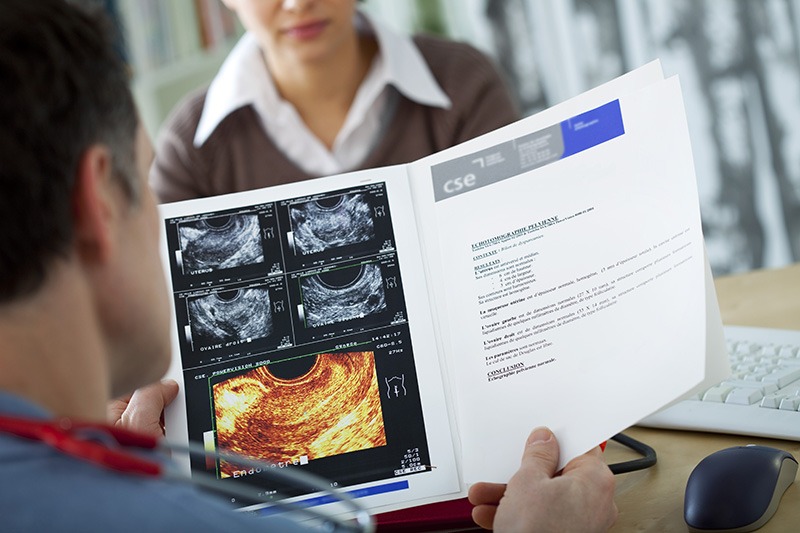SERVICESFOR HER

The basics
Options
Advanced options
Fertility preservation
Female Fertility Assessment

This is the vital first step in any fertility journey and is fundamental in order to properly map out the available options and choose the optimal path forward for you. Female fertility assessment consists of a series of diagnostic tests that are performed prior to any therapeutic intervention and are a way to assess the baseline characteristics and fertility potential. Knowledge of these parameters is fundamental in order to ensure safety (both for your own health, as well as for the foetus) and to ascertain which reproductive treatment option best suits you. We recommend similar assessment for men as well.
Viral and other infectious diseases’ screening tests
Screening for the most common infectious diseases that may be transmitted to the fetus in utero is important both as a means of assessment of your own health and well-being, in addition to its contribution to the decision-making process. Typically, screening tests for hepatitis B & C, HIV I & 2 and syphilis. Additionally, screening for rubella toxoplasma and CMV is performed, as these pathogens are known to cause developmental defects to the foetus.
Anti-mullerian hormone (AMH) measurement
AMH is a hormone that accurately reflects the female reproductive potential and is an indicator of ovarian function. A baseline AMH measurement is applicable as a predictor of the ovarian performance in a natural cycle and of the ovarian response in a normal stimulation or mild stimulation cycle, thus assisting in the individualisation of medication doses and administration schedule.
Haematological heredity testing
These tests are not performed through genetic analysis, however are a less costly alternative that provide basic information on common hereditary blood features and conditions, namely blood group classification and haemoglobinopathies.
The former is significant in order to avoid adverse foetal immunological reactions in case of pregnancy and is important during the matching process with the genetic material donor in donation programmes.
The latter, is a group of different anaemias, which may be passed down to the embryo if present in the DNA of the parents and primarily include thalassemia A & B, in addition to sickle cell anaemia. These conditions are diagnosed via simple haemoglobin electrophoresis and sickle test.
Note that these tests may not reliably distinguish between homozygosity and heterozygosity, therefore in selected cases, supplementary genetic testing may be recommended.
Thyroid function assessment
These tests include a complete assessment of thyroid endocrine function via TSH, T3 & T4 testing, in addition to anti-TPO and anti-TG antibody measurement, to test for autoimmune thyroiditis. Proper maternal thyroid function is vital for foetal development during the first trimester, while studies have also indicated that it may affect embryo implantation as well.
Genetic testing
A collection of tests that investigate whether there are any underlying genetic abnormalities that may be inherited by the embryo in the parental genome. These test primarily include karyotype and Cystic Fibrosis DF508 assessment, with additional tests available, if they are indicated by the personal and family history of the couple. The results of these tests are valid for life and need not be repeated if already performed.
General gynaecological assessment
This is a thorough gynaecological check-up from the perspective of fertility. Conducted by a fertility specialist, this assessment should include:
- Thorough gynaecological and obstetrical history
- Physical examination of the pelvis and external reproductive organs
- Ultrasonographic examination of internal reproductive organs
- Vaginal and cervical smear examination
Menstrual cycle baseline hormonal assessment
This examination measures the baseline values of all hormones associated with the menstrual cycle and provides critical data in the individualization and planning of your treatment. The hormones included in these tests are Follicle Stimulating Hormone (FSH), Luteinizing Hormone (LH), Oestrogen and Progesterone. Additionally, measurement of Prolactin is recommended, as it also affects reproductive function during the menstrual cycle.
Diagnostic Hysteroscopy
This is an endoscopic procedure with the aim to directly assess the uterine cavity and the endometrium (the lining of the uterus). A healthy endometrium is vital and indispensable for a successful embryo implantation. Hysteroscopy allows for direct visualization of the endometrium, via a small camera that is inserted transvaginally, without the need for surgical incisions. Additionally, during or after diagnostic hysteroscopy, if polyps, hyperplasia, uterine abnormalities etc are present, targeted therapeutic interventions may be performed within the same session. At the same time endometrial biopsies may be obtained for histological assessment, immunological analysis or microbiome analysis.
Hysteroscopy may be performed within the clinic under total intravenous anaesthesia in most cases and is a safe diagnostic technique with very rare complications. However, in higher risk cases, such as class II obesity and above, cardiovascular or respiratory pathology, diagnostic hysteroscopy may be performed in an affiliated hospital to ensure patient safety and optimal outcomes.
Fallopian tube assessment
The fallopian tubes are the site of natural conception and are thus vital in reproduction. Even in cases of IVF, fallopian tube status has been shown to affect ovarian function and thus, their assessment is indispensable in the baseline fertility assessment. The fallopian tubes are tested for patency or the presence of hydrosalpinx, with obstructed or dilated tubes being indicative of inflammation or scarring. This assessment may be performed by:
- Hysterosalpingography (HSG): a reliable test performed in an affiliated diagnostic centre that radioscopically investigates fallopian tube patency.
- Hysterosalpingo-Foam-Sonography (HyFoSy): an ultrasonographic alternative to HSG, HyFoSy is reportedly more tolerable and may be performed within EmbryoClinic.
Additional tests
Apart from the above, there are additional tests that may be optionally performed in order to better assess your reproductive health status, or they may be recommended in cases of comorbidities (known immunological conditions etc) or when there is a history of ART failure. Such tests may reveal the underlying cause and thus lead to its correction and ultimate success of ART. Such tests include:
- Laparoscopy: in most cases diagnostic, with the option for direct therapeutic intervention also available, laparoscopy offers the most precise assessment of the anatomy of the internal female reproductive organs, the pelvis and lower abdominal cavity. Laparoscopy may reveal underlying adhesions, endometriosis or other anatomical abnormalities and allows for their immediate treatment within the same session.
- Thrombophilia testing: this is a genetic diagnostic procedure that tests for the presence of specific gene variants that have been associated with impaired coagulation function and have been shown to also affect fertility. This information is used in the formation of an individualized treatment protocol.
- Microbiome testing: this genetic test is conducted on endometrial samples obtained during hysteroscopy, curettage or pipelle biopsy. Subsequently, both the types of microbes, as well their populations is specified via genetic analysis. Microbiome testing can accurately diagnose endometrial dysbiosis, a condition that has been associated with poorer fertility outcomes.
EmbryoClinic is by your side
on every step of your journey
towards parenthood!